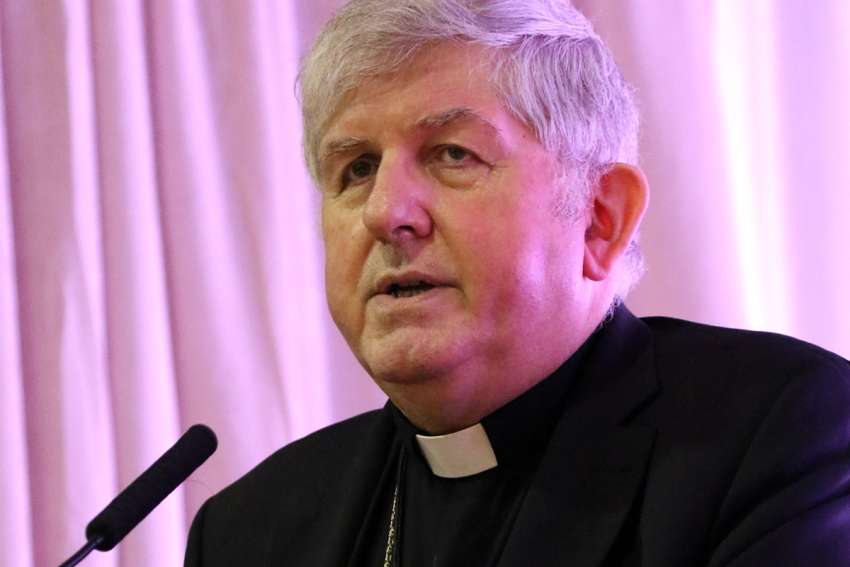Will Donald Trump or Kamala Harris be inaugurated as the next President of the United States?
One should not expect Revelation to provide the answer. After all, the final book of the New Testament “is not a Ouija board,” said Cardinal Thomas Collins, Archbishop Emeritus of Toronto.
“That is disrespectful to the Word of God,” said Collins in an interview with The Catholic Register. “It is treating (Revelation) like a little toy. What it does is show us the majesty of God.”
On Oct. 3, the former shepherd of Canada’s largest diocese will speak at St. Mary’s University in Calgary about how the Book of the Apocalypse can help Christians navigate a hostile and tumultuous world with courage and integrity.
John the Apostle penned this divinely inspired 22-chapter text in the first century as a reassuring and comforting balm for the early disciples facing persecution. This creed also renders stern warnings to individuals who deny Christ to get ahead on Earth, and to deceptive scribes who add or subtract from the written prophecies, as “God will take away that person’s share in the tree of life and in the holy city" (Revelation 22:19).
Jesus’ beloved disciple addresses Revelation to the Seven Churches of Asia Minor, which is present-day Turkey. John alludes to a sect of Christians called the Nicolaitans existing in this realm who feigned fealty to the Lord while conforming to pagan self-indulgence and idolatry when convenient.
“They tried to be neutral against the forces of society,” said Collins. “The message for those people, the Nicolaitans, is ‘look, you’ve got to make a choice. Are you for Christ or not? Who do you worship, Jesus or Caesar?’ ”
Nothing is new under the sun. Christians existing in 2024 are called to answer the same soul-defining questions. They too have to be on guard against the dangers of “the scarlet woman” and “Babylon the Great,” described by John “as a highly materialistic society where people are bought and sold like objects,” said Collins. The cardinal said this peril is particularly acute in Canada.
The menace of Christian persecution and martyrdom present in John’s time is also manifest today. Collins alluded to the contemporary situations in Nigeria, China and India.
Now a 77-year-old retired prelate, Collins said he became entranced by Revelation at a young age.
“The beauty of the language (and) the power of the imagery is so astonishing,” said Collins. “It is rich in the tradition of the Old and New Testament. There are not really any quotations from the Old Testament in Apocalypse, as there are, for example, in Matthew and other places. (However), the whole of it is just steeped in the tradition of apocalyptic imagery and the books of Daniel and Isaiah, which make it just very rich.”
Aware that many Christians are daunted by its intricate symbolic language, Collins advised approaching Revelation with a spirit of trying to understand what Jesus — through John — was communicating to the church in Smyrna and others in 95 AD. He emphasized that it is not a predictive tool for current events.
“He's not seeking to tell the people of Smyrna in the year 95 what is going to happen to Donald Trump and Kamala Harris,” said Collins. "Why would he do that? You know that's not what he's doing. He is talking about the situation of their time, but their time and our time have many similarities.
“When he says, inspired by the Lord, is that we are to follow the Lamb and not the Beast, that's true now as well as it was then. It's just that the Beast has different clothing than he had then.”


